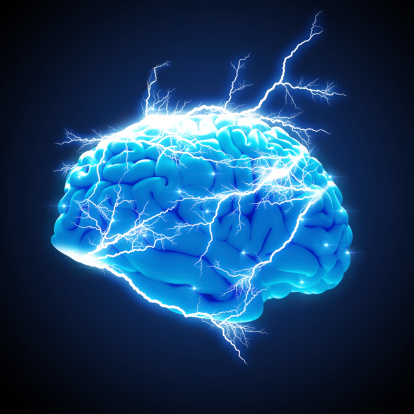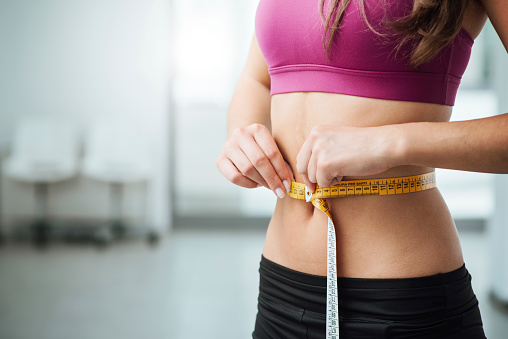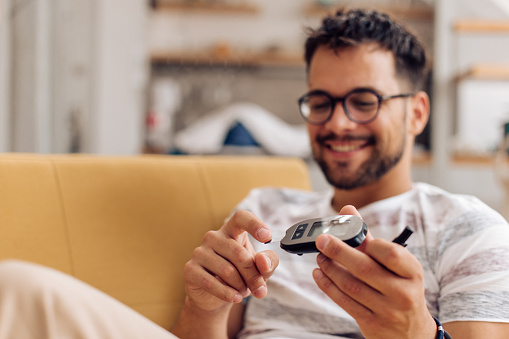How do you know if you're in ketosis? In this article, I'm going to break down five signs to pay attention to, in order to know if you are in the great land of ketosis.
As the best selling author of four books & founder of Keto Kamp where our mission is to educate and to inspire 1 billion people, it is my duty to help you succeed in your health goals. I'm super grateful you chose this article today, thank you!
So far, in our ten-part series, we have covered the very important details around the history of Keto and nuances that define clean keto foods & dirty keto foods, how to deal with common symptoms of keto - like the Keto flu, brain fog & fatigue and the specifics around the macros and calories on keto. So if you haven’t already caught up on the previous articles, I highly suggest you do.
Let's talk about ketosis. The great land of ketosis. How do you know if you're in ketosis? I'm going to give you five signs to pay attention to here and I'm going to teach you the optimal ways to test for ketosis. We’re going to talk about testing with urine, breath and blood. Which is the most accurate way to test, what are the optimal numbers to hit and by the way, the following methods will teach you how to know if you're in ketosis without even testing.
The first sign to look for, to know if you're in ketosis is, mental clarity. Your brain fog is gone. You’re actually recalling names very easily, you are able to adapt to stress and you have a focus and clarity that’s hard to describe. You know it when you feel it. You're super productive. You're on your A game, and you feel damn good. The reason is, ketones fuel the brain much more efficiently than glucose.
Did you know, breast-fed babies go in and out of ketosis? [1,2,3] It's because breast milk has saturated fat and cholesterol, which actually helps the development of the brain! Beta hydroxy butyrate, one of three ketones produced by the liver, actually crosses the blood brain barrier and it turns your brain right on. The brain is a fatty organ, it is only 2% of our body weight, but it sucks up about 20% of your body's energy needs. And guess what it's made up of? Mostly fat, about 70 to 80% of your brain is made up of fat. Your brain loves fat, so when you're in ketosis, you're giving your brain the building blocks it needs. That's the first sign right there. You are mentally sharp, no more brain fog, no more brain fatigue. You feel like a Keto Rockstar.
The second sign to pay attention to is, you're losing weight. Look, a lot of people come to keto for the weight loss but they stay for the health because when you follow a healthy keto lifestyle, weight loss comes as a side effect. It's a byproduct of getting healthy; we get healthy to lose weight. When you start dropping fat, burning fat, you are in ketosis. Your body has now stopped burning the glucose and the sugar, burned through its glycogen stores & sugar reserves and now it's burning your fat cells for energy. That's what we want.
So you're losing two pounds, three pounds, four to five pounds per week when you are in ketosis because your body is doing what it's designed to do, which is to burn fat. It is our primal birthright. We have been using keto for 2.5 million years. Burning fat as a side effect of ketosis.
Just one little caveat here. When you are losing weight on keto, you might feel a little worse before you feel better. The reason being, we store toxins in our fat cells, and let's face it, we live in a time and a place in this world where we are exposed to more toxins than ever. Toxins enter the body through breathing, eating, touching our skin, etc. The body is so smart. The number one priority of the body’s innate intelligence is survival. All it wants to do is survive. So when toxins enter the body, guess what happens? The body does not want those toxins to enter our vital organs like our heart, kidney or brain. So it activates the PPARY pathway, which actually signals those toxins to go and hide into fat cells or even creates new fat cells for those toxins to go live in.
The body is doing this as a survival mechanism. It's amazing, but the problem is this, when you start losing weight and burning fat on keto, which you will do now, the body cannot burn those toxins, but as it burns the fat cells, those toxins end up getting dumped into the bloodstream, which may cause you to not feel so good. If you are not sure about your toxin load, take my free toxicity quiz to get your score today.
So what are some things you can do? Bitters! Bitters, are better! Bitters will help your liver stimulate bile which will help take those toxins and get them out of the body. Here's a list of bitters I want you to incorporate on keto as you start burning fat. Arugula, dandelion greens, dandelion tea, ginger, ginger tea, lemon, lime and apple cider vinegar. Squeeze some lemon or lime on your keto meats and proteins. There are also herbs you can smell to stimulate the liver such as rosemary, basil and thyme. I also think it's a good idea to take an ox bile supplement. I use Systemic Formulas D digest. You can purchase this supplement here.
The third sign to look for, to know if you're in ketosis is that you can skip a meal, maybe two, and feel great. When you skip a meal and feel great, it means your body now has the metabolic flexibility to go from burning sugar to tapping into your fat cells and pulling energy from your fat cells. This actually sustains your glucose and insulin levels, to ensure you have peak energy levels and don't get hangry or have brain fog or get irritable because your body's getting those calories from its own body fat.
Isn't that super cool? You could get your calories from that plate of food in front of you. Or you can get your calories from your belly, butt, hips and your thighs. It's your choice. So that's the third sign to pay attention to, you skip a meal, and you feel like a rockstar. The opposite is true. If you skip a meal, and you feel like crap that's a sign that you're not in ketosis. You're not metabolically flexible, and there's still some work to do.
Question of the day: How do you feel when you skip a meal? Do you feel great or do you get irritable and hangry? Comment below and let me know how you feel when you skip a meal.
The fourth sign to pay attention to, to know if you are keto & fat adapted is that your sugar and carb cravings are gone. When we are in ketosis, we adjust and reset our metabolism but also our palate. So we start craving more healthy fats & proteins and less of the sugars & carbs. You don't have to grab a protein bar or a shake or some sort of sugary beverage every two to three hours. You're not craving that anymore. It's gone.
I've witnessed sugar addicts, myself included, reset their entire palate, cravings gone, like magic, disappeared. By the way, I was a carb-aholic and snack-aholic. I was a pure sugar burner; I was addicted to sugar. Now I have come to find out that the same part of our brain that lights up with a sugar and carb addiction also lights up with a cocaine addiction, making sugar as addicting as cocaine in this scenario.
The fifth way to know if you're in ketosis, which is actually the most accurate way to know is to test. There are three different methods for testing ketones, we have urine, breath and blood.
What is the best way to test for ketones?
Let's just take urine out of the equation. Unfortunately, ketone urine strips are not accurate, especially after the first couple of weeks of doing keto. Once your body and your brain is efficient at using ketones, it will not show up in urine. Meaning you're going to get frustrated, wondering, “why am I not in ketosis? I'm doing everything right!”, not realizing that your body's actually using those ketones, which is what we want. Needless to say, we don’t like urine strips here at Keto Kamp, so you can cross urine strip testing off the list.
The second option is, breath. Up until recently, I would say to stay away from breath. It wasn't really accurate but I came across a meter called biosense. I actually have it and they actually have created the first accurate breath ketone meter if you want to check them out. Click here, and use the coupon code ketokamp at checkout for $20 off your device.
Now, I want to focus on blood testing since it is the most accurate. Personally, I use keto Mojo. I love this machine because it tests your glucose and your ketone markers. You can purchase your Keto Mojo device here. This is how you know if you're in ketosis. If you test your blood ketones, which is beta hydroxy butyrate (BHB), and it registers as 0.5 or higher. Hey, congratulations, you're in the great land of ketosis.
The goal is not to necessarily have high amounts of ketones. We don't chase ketones here at Keto Kamp, we chase results. The sweet spot I've seen for most people is 0.8 to 2.8 on the keto Mojo machine. We also want to check glucose because if we have high glucose and high ketones, the body is going to burn the glucose first since glucose is a toxic fuel source and your body wants to get rid of that thirst. We want optimal numbers of glucose. The optimal numbers of fasting glucose is 70 to 90. Keto Mojo will give you that on a separate glucose strip. The optimal numbers for ketones, as I mentioned is typically between 0.8 to 2.8.
Now for some advanced testing methods for you. One hour after eating a meal, which is called postprandial, test your glucose again, if your glucose is 120 or below, that's a great sign. That means your body is metabolically flexible. That keto meal did you well. Two hours after eating a meal, you want your glucose to be 100 or less. Those are the optimal markers.
Please comment and let me know if you do test. Let me know what your numbers look like in the comment section down below.
A common question that I get all the time is, “okay, I'm doing keto, I’m eating all these saturated fats and cholesterol, but my doctor is telling me that I have to go on a statin because my cholesterol is high; my parents are worried that I'm going to have a heart attack, my friends are saying I'm going to have a heart attack; does keto cause high cholesterol and if so, does that increased your risk of a heart attack or a cardiovascular event?”
I want to bust the myth and break it all down for you and give you optimal markers to request from your doctor. In the next article, right here, you'll learn all about cholesterol and keto, and the optimal ranges to look for. This is the conversation you'll have with your doctor so you are empowered and understand how cholesterol and keto works.
If you'd like to watch a video of me breaking down this article, click the play button below.





